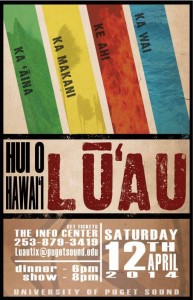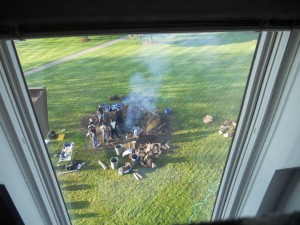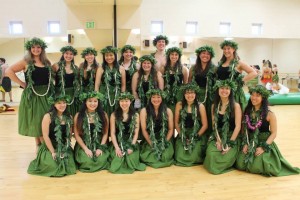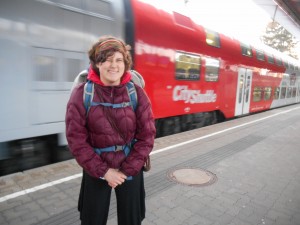In which Daniel looks back at this year from the three-quarters mark.
If college was marketed to me as anything growing up, it was as a life-changing experience – not necessarily in a way that meant a single moment blatantly and dramatically altered the course of one’s life, but rather in a way that meant that the act of going through this educational system more or less independently would change the way one approaches work and life. Yet as I consider life thus far, I am debating the validity of that statement. I don’t think that it’s necessarily true or false across the board, but that it may be true for me only to a degree.
Let us consider the changes in my life since my first blog post that was posted on the twin side of last semester – during the fall break that divides the fall semester in half. Once again, the time is immediately after midterms (although then the fall semester, and now the spring), and once again, I am sitting in a Starbucks as I write this (although it is now the Starbucks on 6th Avenue, rather than the one on Proctor). Once again, I am listening to Katy Perry (although then I was listening to my favorites from her Teenage Dream album, and now I listen to my favorites from Prism), and I am still wondering what on earth I am doing writing about my life (as if it is of interest to anybody). I still spend almost all my time in the music building, and am taking almost the exact same classes, just increased in level and subsequent difficulty, and am involved in the same extracurriculars and student activities.
Yet a great many things have also changed. My house, Rat Sking Thong (see Blog Post #1 if you are confused by this title), lost Isabel Chae as a housemate due to her decision to withdraw from school. I became a codirector of Underground Sound, my a capella group, alongside my good friend Lisa Hawkins, and became the chorister (director of musical activities) of my fraternity, Beta Theta Pi. I helped the Residential Student Association change our Director of Sustainability position to that of Director of Publicity. My family moved from one house in Raleigh, North Carolina, to another, larger and more wooded one, and my dog had her 10th birthday. And I did not sleep through a single midterm!
It’s funny that people can so easily live in circles. Maybe they’re just easy to become comfortable in, or maybe it’s easy to forget that you live in a circle at all – not that living in circles is necessarily a bad thing. But I feel as if I keep coming back to writing about me writing. Is my life really that uninteresting? (I’ll give you a hint: The answer is yes.) Every time I’ve watched a Puget Sound theatrical production, I feel as if I focus on the gender studies related aspects of it. And I keep listening on other people’s conversations as I write these posts, as I am always in public places, just as I am listening to a woman I don’t know describing her friend’s two-and-a-half-year-old daughter comforting her in times of stress. Even my mood and temperament seem to repeat across the year, as they have done every year – beginning with confident optimism in summer, increasing desperation in fall, exhaustion and despair in winter, and an almost inexplicably powerful, sentimental hope in spring. Maybe it’s the fact that school years have such a similar format each time, or I am just deeply affected by the weather.
Still, I wonder if things ever really, really change. Probably. Who am I asking? Does anyone even read these blog posts? I genuinely have no idea.
In our last chapter meeting, the pledges of Beta Theta Pi were discussing one of our core principles, intellectual growth. We debated and analyzed the statement “Betas are devoted to continually cultivating their minds, including high standards of academic achievement”, considering the parallels between cultivating a garden and cultivating a mind – the necessary work, the continual labor, the necessity of love for that which is being cultivated, and the joy in the fruits of one’s labor. But what struck me most about the chapter meeting was when the person responsible for education played a video of David Foster Wallace’s 2005 graduation speech to Kenyon College, entitled “This Is Water”, which can be found here: http://www.youtube.com/watch?v=TzFNh2_dSBg
Fish, he jokes, go through life ignorant enough to not even consider what water is. This, he goes on to say, is not so unlike adults that go through the daily, boring, frustrating grind of daily life without considering the attitudes with which they perceive the world. If we think beyond our automatically selfish attitudes, he says, if we have the imagination to see the world as an expanding place of possibility and the empathy to consider the hardship and kindred spirit we share with others, we are free to choose how to see the world. We are free to decide whether to say that the world is a good place. This, he says, is water.
I will say this about living in circles: I have done it for what seems like every year since middle school began, and it, in and of itself, is not what I am unhappy about. I am unhappy that it is not my choice.
Maybe that’s what being an adult is supposed to be about. Maybe I’m supposed to choose what circles I live in, and how expansive my world is, and how I connect with others. But I’m just a college student three quarters of the way through his sophomore year of college. What would I know, anyway?




